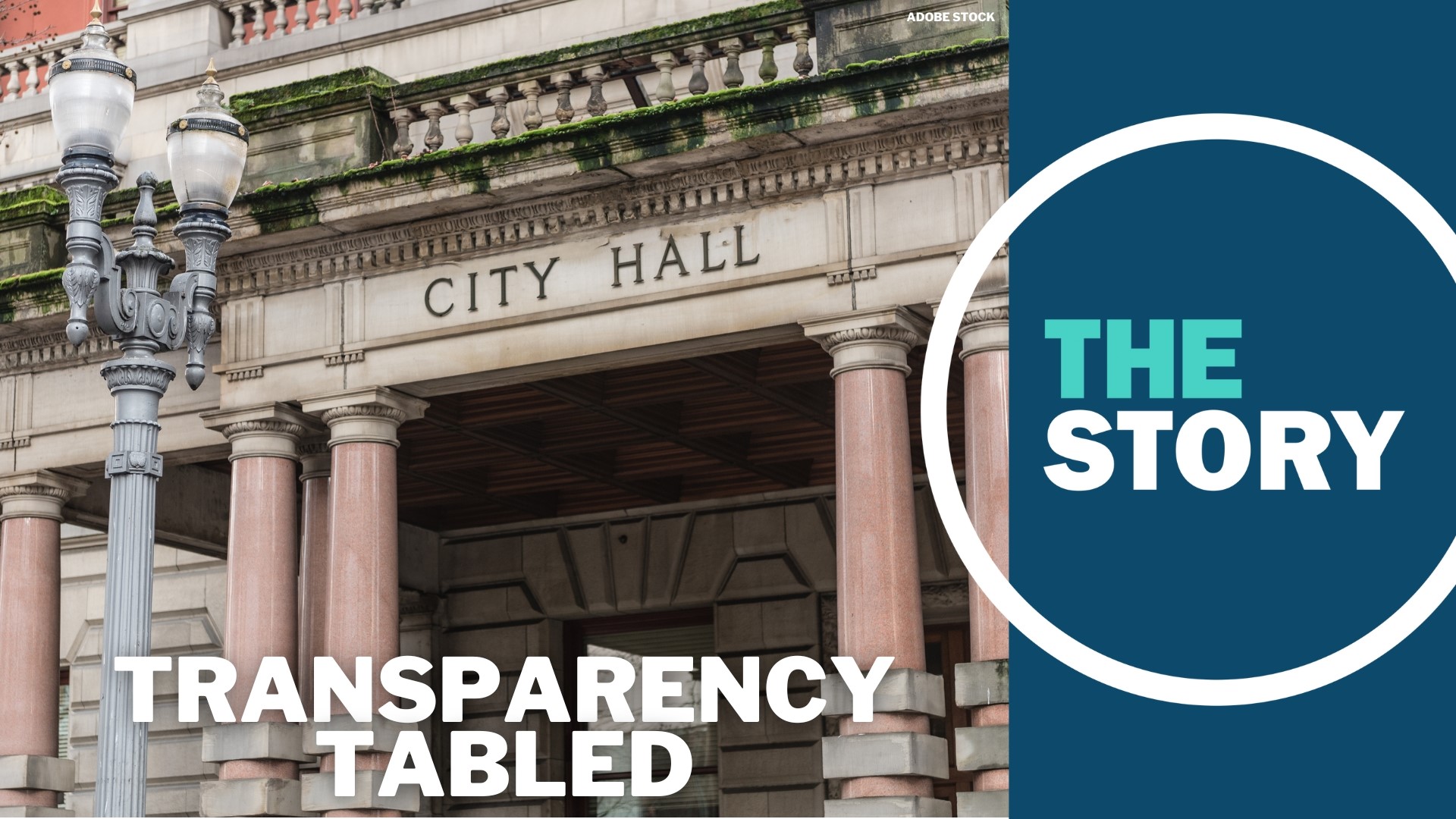PORTLAND, Ore. — Last week, as a historic amount of snow fell across Portland and many drivers were struggling to get home, Portland's city council was in the middle of an afternoon meeting. An important topic was on the agenda during that meeting, but it got somewhat buried when the snow crippled the city for a few days.
Before the council was the topic of government transparency. Newly elected Portland City Auditor Simone Rede brought a proposal to the council, one that would send a ballot question to Portland voters in the coming May election.
The proposal? Whether Portland voters would approve of a new role in city government — a transparency advocate, one that would function as something of a government watchdog.
The advocate would have the authority to investigate how well the city is letting people access public records, evaluate whether they are following open meetings laws so that the public can see the work that they do, and could even investigate city council members for potential violations of these rules.
Portland's city commissioners spent two hours listening to testimony in favor of the position, then ultimately decided that they weren't interested in proceeding with the proposal for someone with the power to investigate them — at least not right now.
"This proposal is both timely and urgent," Rede said in her testimony. "It is responsive to our city's changing form of government. It is appropriate and necessary as a check on the newly separated branches of legislative and executive government that will define our city."
Several organizations testified in favor of the new position, including former members of the Portland charter commission and representatives from the ACLU of Oregon.
"Mayor Wheeler, in 2020 you and the city council adopted a resolution recognizing transparency as a core value of the city," said former Portland charter commissioner Bryan William Willis. "But the city has yet to take steps necessary to operationalize needed institutional and cultural change. This proposal allows all of you to take that step."
RELATED: Portland begins the process for drawing up city council districts required by charter reform
"Over the past years, Portland has unfortunately developed a reputation for secrecy. There are several issues that emphasize our city's need for a transparency advocate within the auditor's office — lack of community trust, lack of transparency, inefficiency, and inequity," said Jude al-Ghazal Stone from the ACLU. "We've heard from Portlanders that public trust in our city government is very low. People pay attention to what's happening in our city and they see that the city has been subject to multiple lawsuits regarding public records practices, countless district attorney positions, and headline after headline about secrecy and missing or hidden records."
Late last year, Oregon Public Broadcasting reported that thousands of text messages from Portland Mayor Ted Wheeler's city-issued iPhone and the phones of other top officials went missing for years from the public record. And in July, the city had to cover $200,000 in attorney fees after it refused to turn over decades-old legal documents and lost in court when it tried to sue the retired developer who had requested them.
Despite the testimony in favor, commissioners seemed unmoved. They expressed a desire to slow the process down.
"I would encourage us as we think about the transparency space that we not cut corners here," said Commissioner Mingus Mapps. "I think ... taking some time to collect public testimony, hold a couple of community meetings, and have a work session would both probably build political support for this idea and would ultimately get us to a better proposal."
"I'm sure you would agree that if something goes out to the voters and it says a proposal to increase transparency of the City of Portland and investigate elected officials or whatever it's going to say, I don't know what the language will be and I don't pretend to know, it's pretty certain that it's gonna pass, right?" Mayor Ted Wheeler opined. "So let's assume that that's probably the case, that it would likely pass. Therefore, wouldn't you agree with me that it is important that we get this right?"
Rede countered that it's not the first time the idea has come before the commissioners, suggesting that perhaps the commissioners didn't do their homework.
"I'm disappointed at the level, the lack of engagement prior to this meeting, prior to the Feb. 15 meeting — it's possible maybe you didn't take this as seriously as you should have," she said. "And Mayor Wheeler, the ballot language is in the packet for today's meeting. So I'm not feeling confident that setting another session will mean that anyone is further along in having reviewed these materials and giving them the consideration that they deserve."
Regardless, Rede was overruled at Wednesday's meeting. The Portland City Council voted unanimously to table the idea. It's unclear right now when it will come back up for discussion.
Drama at the state level suggests that it's no easy thing to advocate for government transparency, even when a dedicated role exists to do so. Oregon created an Office of the Public Records Advocate during the 2017 legislative session. But the first person to hold the position, Ginger McCall, resigned after 18 months on the job, citing interference and abuse of authority from staff in then-Gov. Kate Brown's office.
McCall's Brown-appointed successor, Becky Chiao, resigned a year later after clashing with the public records advisory council. Since November 2020, McCall's former deputy Todd Albert has served in the role of state records advocate.

